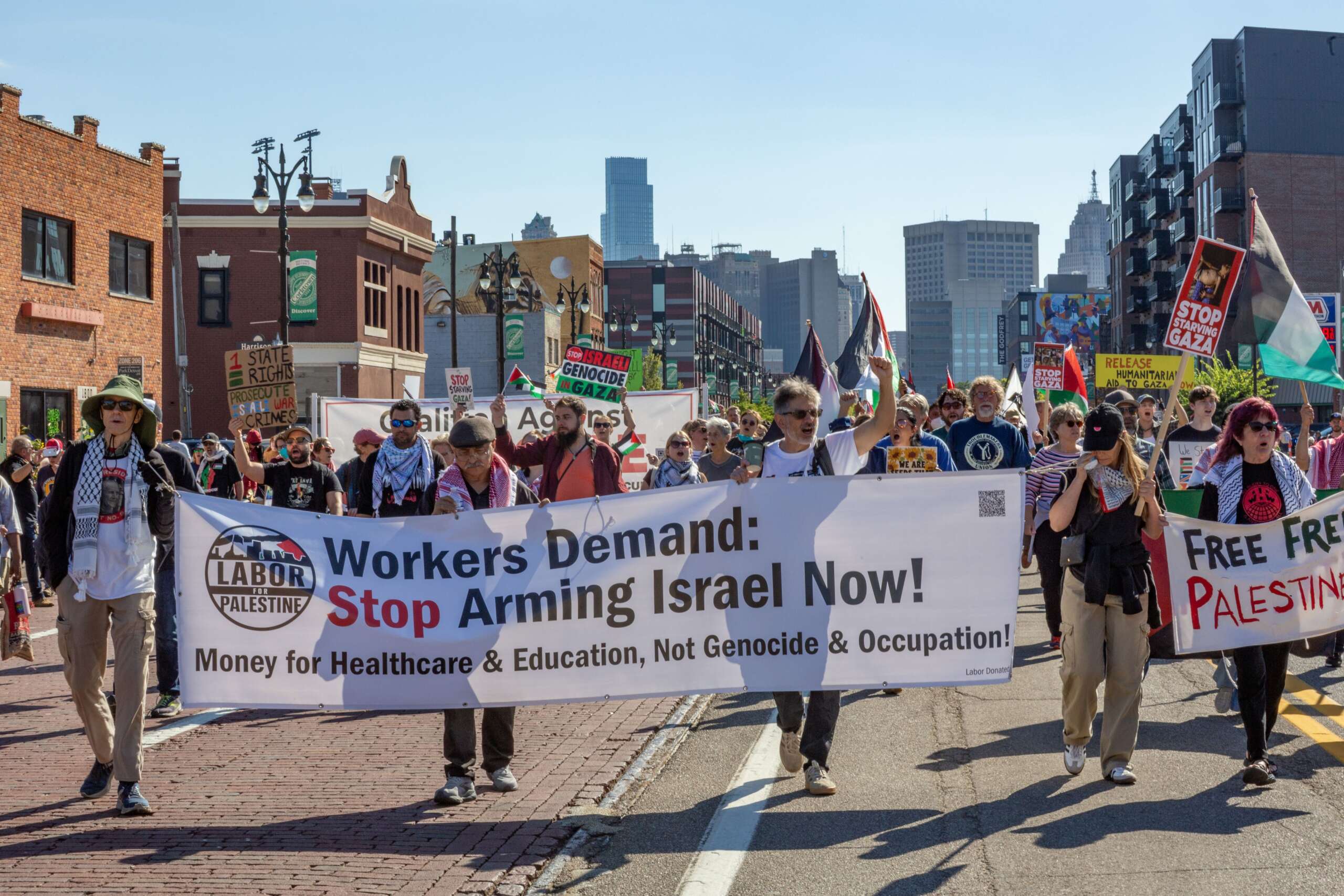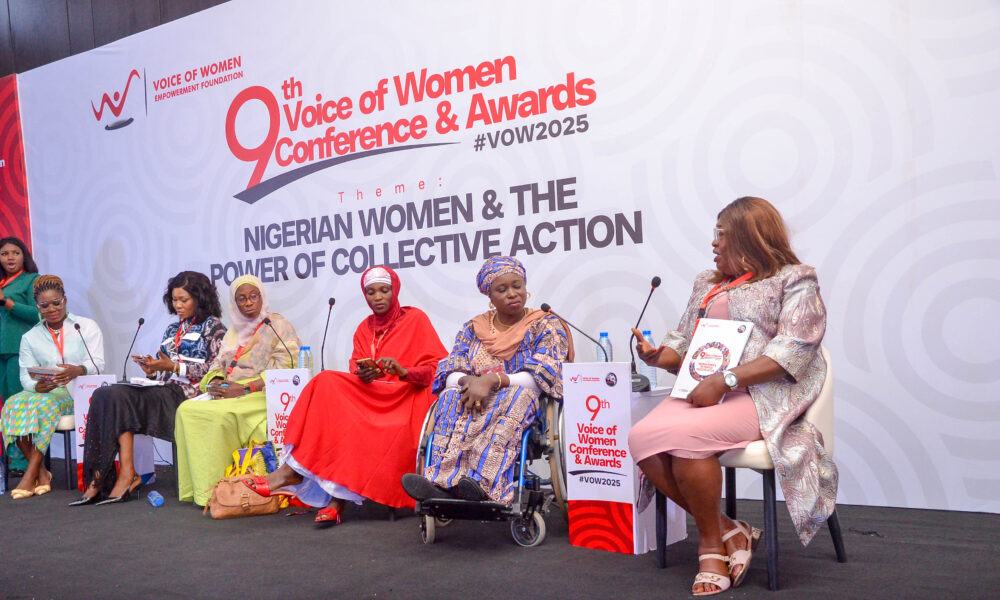Copyright truthout

As Israel’s genocide in Gaza intensified in late 2023, a small number of U.S. labor unions began calling for a ceasefire. Others soon joined in, and many also started calling for a halt of military support to Israel. For many union members, statements didn’t go far enough, so they formed new national networks or pushed their unions to divest from Israel. Some even went on strike. Pro-Palestine organizing within U.S. unions is not new, but the breadth of criticism of Israel’s actions and sympathy with Palestinians coming out of the labor movement may have signaled a shift away from U.S. labor’s historic support for the Zionist movement and the State of Israel — a history whose scope and scale is the topic of labor historian Jeff Schuhrke’s must-read new book, No Neutrals There: US Labor, Zionism, and the Struggle for Palestine. The notion that Palestine shouldn’t concern unions is an odd one, says Schuhrke, because it’s always been a labor issue. U.S. unions, particularly top labor leaders, have just been on the wrong side. Schuhrke’s sweeping and accessible book offers a detailed history of U.S. labor’s century-long alliance with the Zionist movement and the State of Israel, examining the forces and developments that built and sustained that alliance as well as those that opposed it. This is a critical resource for organizers within both the U.S. labor and Palestine solidarity movements as they work to strengthen efforts to build an anti-militarist labor politics that can win justice for workers and oppressed people both at home and abroad. Schuhrke teaches at the Harry Van Arsdale Jr. School of Labor Studies, SUNY Empire State University. His first book was Blue-Collar Empire: The Untold Story of US Labor’s Global Anticommunist Crusade. This interview has been edited for length and clarity. Derek Seidman: To start, what explains U.S. labor’s historic support for Zionism and Israel? Jeff Schuhrke: There are two overarching reasons for this support. The first is the popularity of Labor Zionism, which tried to take the socialist, working-class side of Jewish liberation and tie that to Zionist nationalism. Labor Zionism doesn’t get talked about much today, but through much of the 20th century and the first half of the State of Israel’s existence, it was the dominant force in the broader Zionist project. The Histadrut, which was founded in 1920, was the major vehicle of Labor Zionism. It was a trade union federation, but also much more than that. Historically, it was an instrument of settler colonialism and nation-building. Through setting up cooperatives and infrastructure in Palestine, it helped lay the economic groundwork for the establishment of the State of Israel in 1948, all while deliberately marginalizing Indigenous Palestinian Arab workers. This worker-centered economic development model inspired many U.S. labor leaders, who had personal relationships with Histadrut and Labor Zionist leaders, from the early years of Labor Zionism through the 1980s and 1990s. They completely ignored what this meant for Palestinians. I argue that U.S. labor was ideologically receptive to Labor Zionism because of our own history of settler colonialism. The second big reason is U.S. labor’s traditional support for U.S. imperialism, especially during the Cold War. To avoid being branded as subversive or dangerous, many union leaders wanted to demonstrate their patriotism and loyalty to the U.S. and their opposition to foreign adversaries. Unions also benefited significantly from World War II and their partnerships with the U.S. government. Union membership boomed. That experience influenced many union leaders, who were also staunchly anti-communist, to believe that supporting U.S. foreign policy could help curry favor with the federal government. Why Israel in particular? Israel is an important imperial outpost for the U.S. Especially after the Six-Day War in 1967, Israel became regarded as a crucial pillar of the U.S. empire. U.S. labor has historically supported U.S. imperialism. Labor’s support for Israel naturally flowed from that. In what ways was U.S. labor materially supporting the Zionist movement? Early on, Histadrut representatives sought financial support from U.S. unions, especially Jewish-led ones, many of which were anti-Zionist. But the Histadrut convinced them to provide material support for settler-colonial projects in Palestine, like agricultural cooperatives. They framed this support not so much as a colonialist project, but as an act of solidarity with fellow workers facing harsh antisemitism in the 1930s and 1940s. U.S. unions donated millions of dollars to the Histadrut and fundraised among union members. This support expanded to powerful leaders of the labor movement who were not Jewish — like George Meany, Walter Reuther, and Lane Kirkland — who all became strong supporters of Israel. U.S. unions were at their most powerful after the State of Israel was established. They represented roughly one-third of all U.S. workers and had huge economic resources through pension funds, union dues, and investments. They continued to support the Histadrut, and the Israeli government after it was established, through programs that constructed things like community centers, schools, and hospitals. There was even a stadium in Israel named after George Meany. U.S. labor bought State of Israel bonds and made big investments in Israeli state securities to build infrastructure on lands violently taken from Palestinians. Some U.S. garment worker unions even stitched up uniforms for the Israeli military right after Israel was established. Unions in the mid-20th century were also very politically powerful and used their lobbying influence to support Israel before AIPAC [the American Israel Public Affairs Committee] existed. Every time there was some major conflict between Israel and its Arab neighbors, U.S. unions and the AFL-CIO called for the U.S. government to send more military aid to Israel. This support for Israel continued, though it began to decline as the U.S. labor movement weakened in the 1980s and as Labor Zionism went into decline in Israel. It also declined because there’s been more pro-Palestine sentiment within the labor movement and the U.S. more generally. What’s your assessment of how U.S. labor responded to the genocide in Gaza? I have mixed feelings. It was significant that many unions called for a ceasefire early on, but unfortunately the genocide continued, and there wasn’t much concrete action from the labor movement. It’s easy to forget that, after the October 7 attacks, the word “ceasefire” was totally anathema. In that context, several major unions came out for a ceasefire. First, the United Electrical Workers, and then the American Postal Workers Union and United Auto Workers. Within a few months, hundreds more unions and labor bodies at the local, state, and national level endorsed calls for a ceasefire. Looking back today, this might not seem that significant. These were just statements. But at the time, it mattered, because these unions were major allies of the Biden administration, which was not allowing any discussion of a ceasefire. For unions to come out and demand a ceasefire was significant. There was also the formation of the National Labor Network for Ceasefire (NLNC), which grew to include major unions that represent at least half of all U.S. union members. They held webinars and hosted Palestinian trade unionists. But since early 2024, I think the labor movement has been more disappointing. Significantly, in July 2024, NLNC called on Joe Biden to impose an arms embargo on Israel, but then ignored the fact that Biden completely disregarded unions when they made this serious request of him. Labor for Palestine, a rank-and-file network of pro-Palestine union activists, established caucuses in several unions and put forward resolutions last year at union conventions calling for their unions to support BDS [the Boycott, Divestment, Sanctions movement] and to divest from any money from Israeli bonds. But those resolutions were defeated, and attempts at more concrete action, specifically supporting BDS, haven’t really gone anywhere. There’s been a lot of pro-Palestine organizing among rank-and-file activists across the labor movement that’s pretty unprecedented. But union leaders continue to fear being too pro-Palestine because of backlash they’ll get from Zionist and anti-Palestinian groups, and because many of them are closely tied to the Democratic Party. U.S. labor strongly opposed South African apartheid. Why hasn’t it more forcefully opposed Israeli apartheid? U.S. labor was a really important part of the 1980s anti-apartheid movement to free South Africa. Unions got many cities and states to divest their pension funds from South Africa. Dock workers boycotted South African cargo. There were campaigns to free jailed South African trade unionists. Many union leaders lobbied Congress to impose sanctions on South Africa. All this was important for the ultimate success of the South Africa anti-apartheid movement. The labor movement could conceivably do things like this today around Israeli apartheid. Why isn’t it? One reason is that U.S. labor never strongly supported apartheid South Africa like Israel. Nor was there the same kind of organized backlash against the South Africa anti-apartheid movement like there is around BDS. Union leaders today fear the backlash around supporting BDS and being called antisemitic. This is especially true for public sector unions following the Janus decision, a 2018 Supreme Court ruling designed to bankrupt public sector unions by allowing employees covered by union contracts to opt out of paying their fair share of dues. Why is backing Israel and U.S. militarism more generally bad for U.S. workers? Working-class people’s money is going to death and destruction through the military-industrial complex when it could be meeting human needs at home and abroad. All the taxpayer money that goes into military spending could instead be invested in education, health care, and housing, which could also employ far more people than military spending. When we talk about militarism being bad for workers, Israel has to be part of that conversation. They’re the largest recipient of foreign U.S. military aid. There are also connections between the enemies of labor and the enemies of Palestinians. Many of the wealthy oligarchs trying to crush the labor movement are also pouring money into AIPAC and other pro-Zionist organizations and getting right-wing anti-union politicians elected. There’s also the principle of labor solidarity. Palestinian trade unionists have been explicitly calling for support from the U.S. labor movement for decades. Unions of course have to prioritize the economic well-being of their members and deliver on issues like wages and benefits. But we don’t have to choose between opposing genocide and occupation or supporting our own members. We can and should do both, especially because these things are interconnected. What are the most important things you hope that both the Palestine solidarity movement and the U.S. labor movement take away from your book? First and foremost, unions have an important role to play in the Palestine solidarity movement. They should not be written off just because of their ugly history. Unions are malleable. They can be powerful allies. Rank-and-file workers have the power to change the stances that unions take. And I hope people in the labor movement understand that Palestine has always been a labor issue. There’s nothing new about labor taking a stand on foreign policy issues. It’s just a question of which side are you on? Are you going to support racist, genocidal regimes, or oppressed people in their movements for national liberation? There are proud examples of U.S. labor showing international solidarity around South Africa, or Chile, or Central America. It’s been done in other contexts, and it can certainly be done with Palestine. Is there anything that makes you feel hopeful about the future when it comes to the U.S. labor movement and Palestine? Honestly, it’s very difficult to have hope these days. We failed to stop the genocide for two years, and the immediate future for Palestine seems pretty bleak. But we’re finally seeing more Palestine solidarity organizing within U.S. labor. The knee-jerk support for Israel and Zionism from U.S. unions is no longer prevalent, and I don’t think it ever will be again. This pro-Palestine sentiment is part of a younger generation of diverse working-class people in the U.S. who reject the old tropes about Palestine and Israel. They are more class conscious and more internationalist. This is the future of the labor movement.



